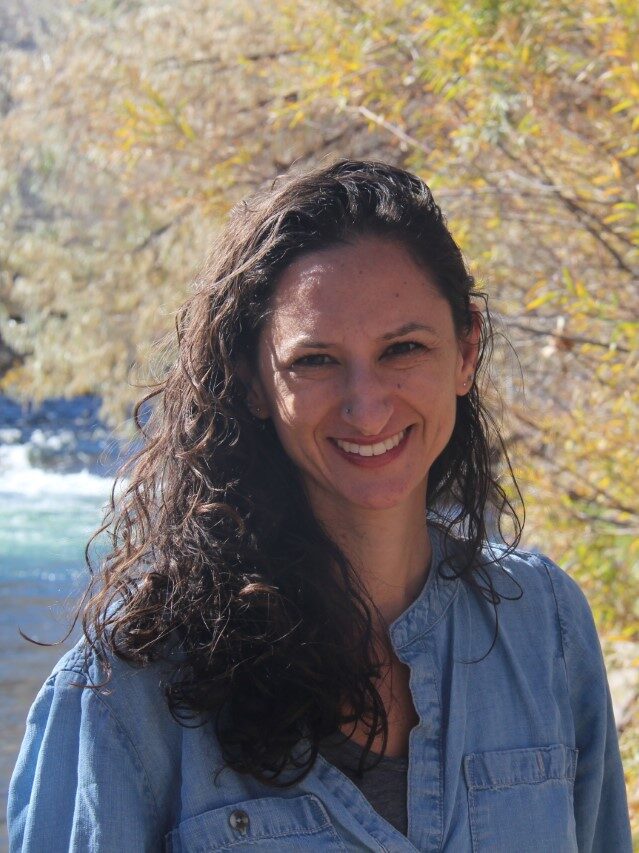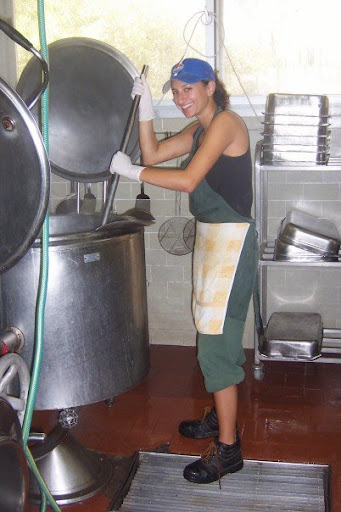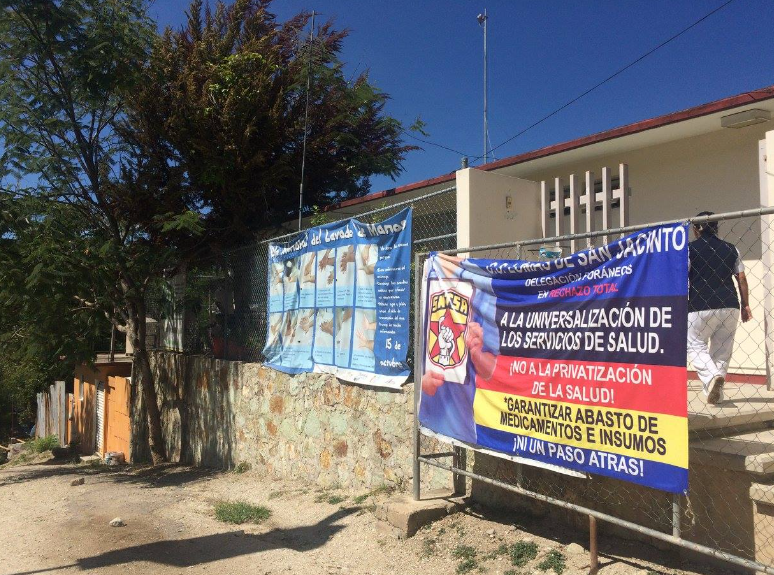Published: 04/10/2023
We discuss global health education at Stanford with Yosefa Gilon, Senior Program Manager for Global Health Education at the Stanford Center for Innovation in Global Health
By Jamie Hansen, Communications Manager

Global health education takes many forms at Stanford, including overseas rotations for residents, fellowships for medical students, and on-campus courses on health technology innovation, planetary health, and global health equity open to all Stanford students. Yosefa Gilon, senior program manager for global health education, helps coordinate these experiences, often in collaboration with overseas partners.
Gilon has been passionate about promoting overseas travel and learning for more than 15 years, beginning with her own formative experiences teaching and learning in Greece and Israel. Prior to joining CIGH, she spent more than a decade in international education, most recently managing international computer science education programs for Stanford’s Computer Science Department. Before that, she spent five years managing short-term international programs at the Bing Overseas Studies Program.
We spoke with Yosefa about her career as an international educator, and how CIGH strives to center all its educational opportunities in a spirit of health equity and equal exchange between Stanford and its global health partners.
What experiences prompted your interest in global travel and international education?
I grew up in California’s Central Valley, and while I didn’t travel too much as a kid, my family helped instill in me an interest in other places. I didn’t study abroad because I thought it was too expensive and worried that I wouldn’t graduate on time. I’ve since learned these are two of the biggest misconceptions about studying abroad.
After graduating, I followed my twin sister, who was passionate about teaching, to Greece. We earned our Teaching English as a Foreign Language certificates and taught English in a fishing village on a Greek Island for 5 months. I didn’t speak the language and the island was very isolated. Despite the challenging experience, I knew I wasn’t yet ready to go home when it was over.

I spent the next 6 months in Israel, in a program where I spent half my time learning the language and the other half of my time working in a communal kitchen on a kibbutz. To this day, I consider it one of the best times of my life. My dad is Israeli, and it was nice to connect with my roots. And as I learned the language, I could communicate more and more with the people around me. I left wanting to find a way to connect people to these kinds of experiences abroad. I pursued a master’s degree in international education from the School for International Training in Vermont. Following that, I spent time directing a study abroad program that hosted international students in southern California and then spent many years coordinating place-based experiential opportunities for Think Global School, an international traveling high school. After that incredible experience of traveling around the world with these high schoolers, I was ready to stay in one place for a while. That’s when I came to Stanford.
Can you share a particularly impactful overseas education experience you helped support?
During my time working for the Bing Overseas Studies Program, I helped manage a long-running service-learning program called Community Health in Oaxaca. In this program, Stanford students learn medical Spanish and travel with local doctors to observe the provision of community health in rural clinics and hospitals. One day, a doctor showed me around a clinic, and we met a local obstetrician. One of our Stanford undergrad students accompanied the obstetrician/gynecologist to a nearby village, where they provided exams to all the local pregnant women who wanted one. The undergrad was beaming, thrilled to have had this chance to experience a completely different, but very successful, healthcare model to what we typically see in the United States, where the provider comes to the patient and offers very personalized care.
This program illustrated many components of a successful overseas education experience. In order to have an impactful educational experience, it’s important to inform yourself as best you can before you go. This program embodied that, with students taking a class on campus before they traveled to learn about Oaxacan culture and the health-seeking behaviors of Oaxacan and other Mexican migrants. Students also stayed with local families who were compensated for serving as hosts, giving students a sense of daily life and getting them out of their bubbles. The program also ensured that students had a chance to debrief and synthesize what they learned on a daily basis.

What do you see as the most essential components of successful overseas education, especially in relation to global health?
Most pivotal are the relationships we build with our partners and the quality of those relationships. The experience needs to be beneficial to both sides. Especially when we send residents to hospitals, we want to ensure we are doing so because our partners have a need or interest. We want to ensure that our participation is filling that need in some meaningful way and that we are not a burden to our hosts. It can’t be just because we want our residents to have experience overseas.
We want our relationships to be equitable and bilateral. This means that an exchange of knowledge is occurring on both sides.
Yosefa Gilon
We want our relationships to be equitable and bilateral. This means that an exchange of knowledge is occurring on both sides. For instance, when our residents go overseas, they are benefitting from learning about new diseases and our partners’ responses to them, but they are also teaching and helping to build capacity. To deepen these bilateral relationships, we hope to host more learners from our partner countries here at Stanford in the years ahead.
Can you speak to the power of international education to spark an interest in health equity and global health in students?
While studying abroad is incredibly valuable, an overseas experience is not necessary to spark that interest. I encourage students to open themselves up to taking courses outside their major and exploring these topics early in their academic careers. For instance, our courses MED 232, Scaling Technology Innovations in Low Resource Settings, and MED 194/294, Global Health Equity, and Bio 103, Human and Planetary Health, offer a great introduction to these topics. These courses aren’t just for students who want to be doctors – they are for students who want to work in biotechnology, in public health, or who are just curious about equity and global health. The earlier students take these courses, the better. It opens them up to a world of opportunities to follow up and pursue related studies.
I encourage students to open themselves up to taking courses outside their major and exploring these topics early in their academic career.
Yosefa Gilon
How can undergraduate, graduate, and medical students get involved with Global Health at Stanford?
There are many ways to get involved! One great option is to join one of the many student groups organized around global health. These include the Global Health Student Council for undergrad and grad students, the Organization for Global Health for medical students, the Climate and Health Student Group, and the Global Health Club, which is organized by post-docs but open to everyone.
In terms of on-campus learning, we curate a list of global and planetary health classes offered across Stanford’s seven schools. Undergraduate students interested in a more formal option can pursue a HumBio minor in global health.
Students can explore other opportunities on our pages for undergraduates, graduates, medical students, and residents. Undergrads can explore our web page highlighting global health opportunities specific to them. For medical students, we offer two unique fellowships: The Global Health Medical Student Research Fellowship and the Global Health Media Fellowship. For medical trainees, we offer an internal medicine Global Health Residency Track. Post-docs can apply for a global health affiliation with our center.
Students interested in working with faculty overseas can explore our map of active research projects and may contact me if they’d like an introduction. Finally, join our listserv to stay up to date on the latest news, events featuring global health faculty and leaders from around the world, and other opportunities.